13 athletes who have fought for equal pay
Talia Lakritz

- The US Women's National Team is suing the US Soccer Federation to demand equal pay.
- Venus and Serena Williams are passionate about closing the gender pay gap for Black women.
- Allyson Felix, Alysia Montaño, and Kara Goucher successfully fought for Nike to pay pregnant athletes fairly.
Billie Jean King was a champion of equal pay in women's sports in the 1970s.
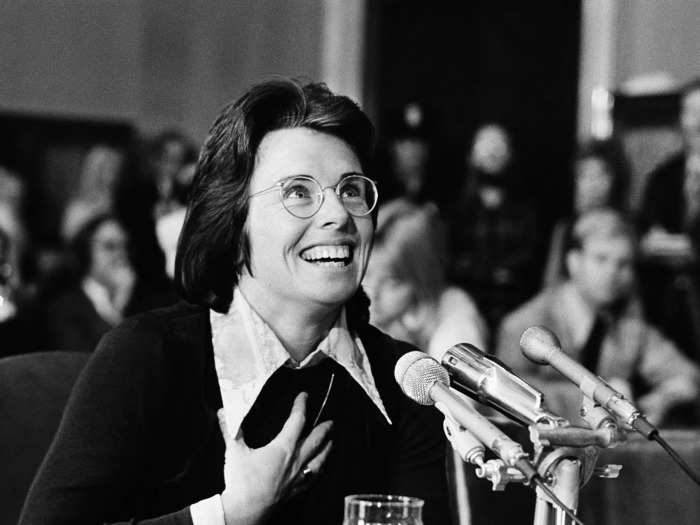
When King won her first Wimbledon in 1966, she received less than half of the prize money her male counterpart did.
"I didn't have any idea we were going to get different prize money," she said on the 2013 PBS documentary "American Masters." "I thought it was totally unfair."
King led the fight for equal pay in women's tennis with highly publicized protests, like barricading herself and 63 other tennis players in a hotel to form the Women's Tennis Association. In 1973, King threatened to boycott the US Open unless women were awarded equal prize money and achieved equal pay for male and female competitors.
Tennis legends Venus and Serena Williams are passionate about closing the gender pay gap for Black women.
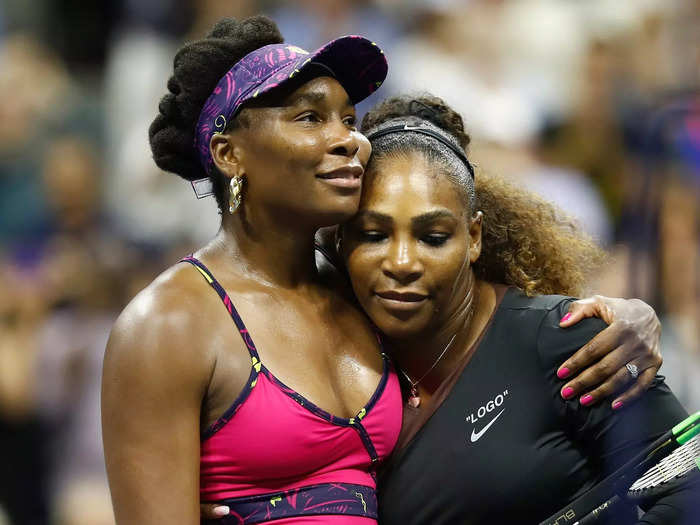
Venus successfully pushed for equal prize money at Wimbledon in a 2006 op-ed in The Times of London titled "Wimbledon has sent me a message: I'm only a second class champion."
Serena also wrote an op-ed for Fortune magazine in 2017 to mark Black Women's Equal Pay Day.
"Together, we will change the story — but we are going to have to fight for every penny," she wrote.
The US women's hockey team threatened to boycott the 2017 World Championships unless they received "fair wages and equitable support."
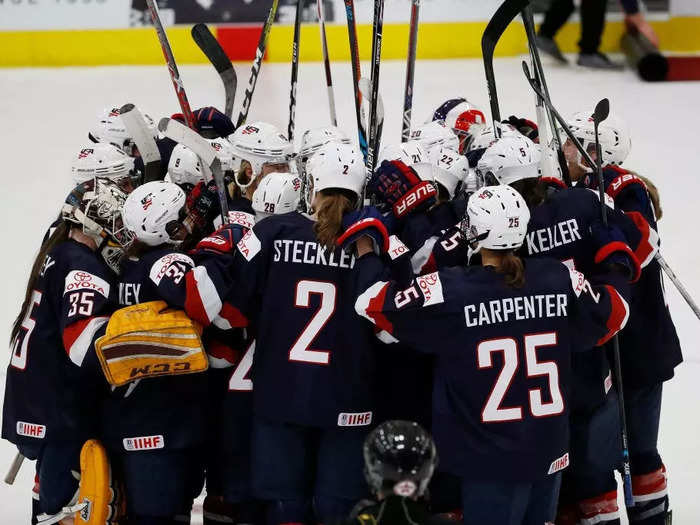
After negotiations with USA Hockey stalled, the women's team took a stand.
"We are asking for a living wage and for USA Hockey to fully support its programs for women and girls and stop treating us like an afterthought," captain Meghan Duggan said, according to ESPN. "We have represented our country with dignity and deserve to be treated with fairness and respect."
The players eventually reached a new wage agreement and defended their title as world champions. The women's hockey team has won every World Championship since 2013.
The US Women's National Team's high-profile equal pay lawsuit against the US Soccer Federation is ongoing.
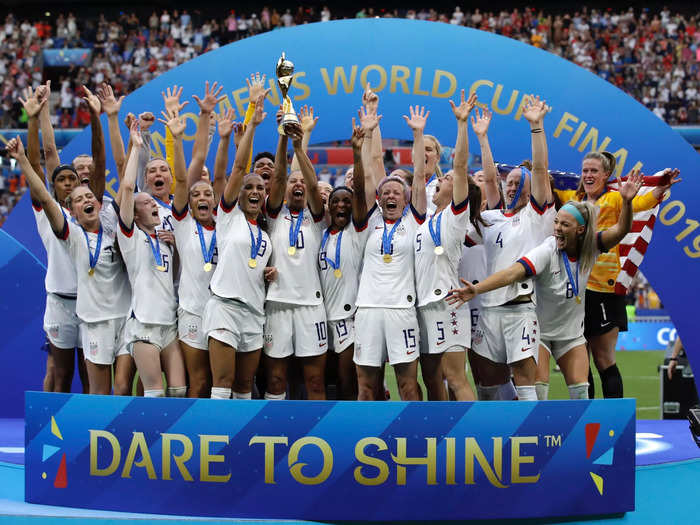
In 2019, the USWNT players alleged the soccer governing body engaged in "institutionalized gender discrimination" by providing favorable compensation and resources to the men's national team.
The USWNT's unequal compensation claim is rooted in the fact that the men's team's players are eligible to make far more money than the women's team's players ever could, Insider's Meredith Cash reported. The team's lawyers argued that if the men had achieved the exact level of success the women have, the men would have earned an additional $66 million compared to what they actually earned.
US Soccer's filings justified lesser pay for the women's team on the basis that "men are bigger, stronger, faster."
A judge dismissed the players' claims of unequal pay last May, but the team is appealing the decision.
The US men's soccer team has spoken out in support of the women's team's equal pay fight.
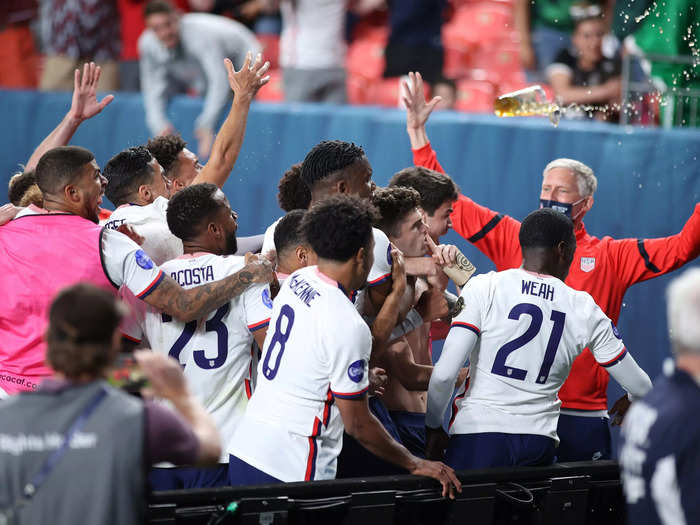
The US men's team threw their support behind the women's team's equal pay fight.
In a statement released by the players association in February 2020, the men said US Soccer — the governing body of both teams — "had no intention of compensating the women fairly" because it was "trying to protect their monopoly."
The men's team also filed an amicus brief in July calling the ruling that the USWNT had not been discriminated against "flawed" and "oversimplified," The Washington Post reported.
"The women deserved better from the Federation — and a lot more money," the men's team's lawyers wrote in the brief as part of the USWNT's appeal.
USWNT players Megan Rapinoe and Margaret "Midge" Purce met with President Joe Biden at the White House in March to mark Equal Pay Day.
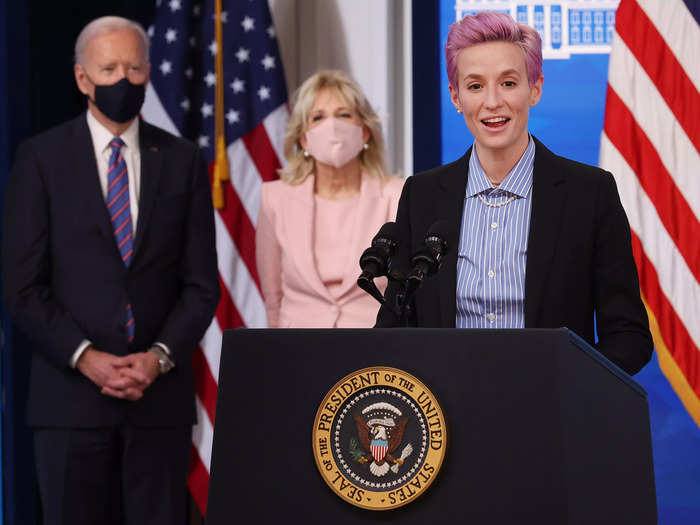
Rapinoe and Purce were invited to the White House to discuss their team's lawsuit, which has served as a rallying cry for women across the US, Insider's Meredith Cash reported.
"I've helped, along with my teammates ... here today, win four World Cup championships and four Olympic gold medals for the United States," Rapinoe said. "And despite those wins, I've been devalued, I've been disrespected, and dismissed because I am a woman."
Olympic track and field star Allyson Felix spoke out after she said Nike offered her a 70% pay cut after giving birth.
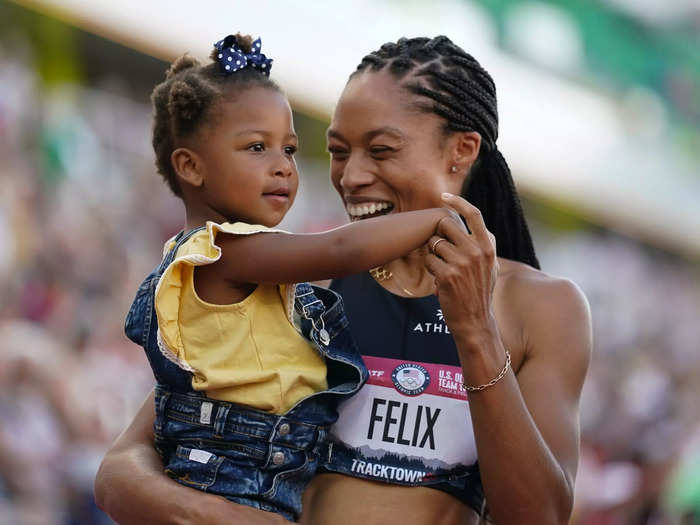
Felix has long accused Nike of being unsupportive of pregnant women and new mothers, and she detailed her experience with the company in a 2019 op-ed for The New York Times.
Her contract with Nike expired in December 2017, and she was pregnant as she negotiated a new deal with the brand. She said Nike offered her a 70% pay cut in the new contract and failed to explicitly support maternity protections she requested in the contract. She also said she was asked to participate in a female-empowerment ad for Nike while negotiating maternity protections with the company.
"I was like, this is just beyond disrespectful and tone-deaf," she told Time magazine in a profile.
The backlash caused Nike to change its policies and remove contract reductions for pregnant athletes.
"We regularly have conversations with our athletes regarding the many initiatives we run around the world," Nike said in a statement to Time magazine. "Nike has supported thousands of female athletes for decades. We have learned and grown in how to best support our female athletes."
Alysia Montaño also helped change Nike's policies for pregnant athletes.
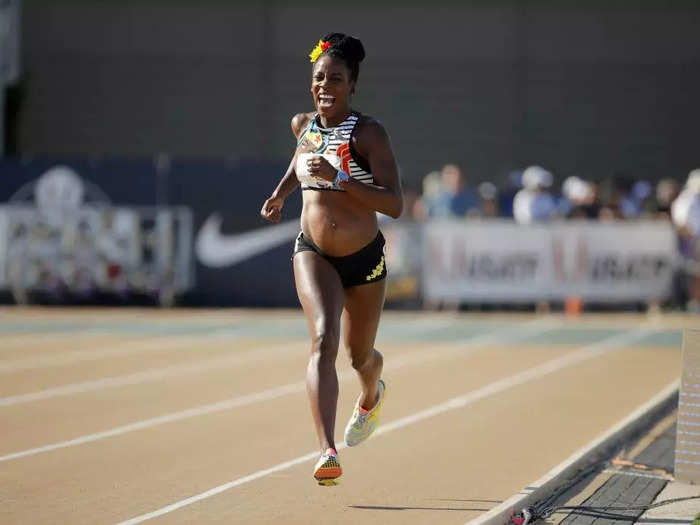
Montaño became known as the "pregnant runner" in 2014 when she competed in the 2014 United States Championships while eight months pregnant.
"The sports industry allows for men to have a full career, and when a woman decides to have a baby, it pushes women out at their prime," Montaño told The Associated Press in 2019. "When I told [Nike] I wanted to have a baby during my career, they said, 'Simple, we'll just pause your contract and stop paying you.'"
Kara Goucher joined Felix and Montaño in speaking out.
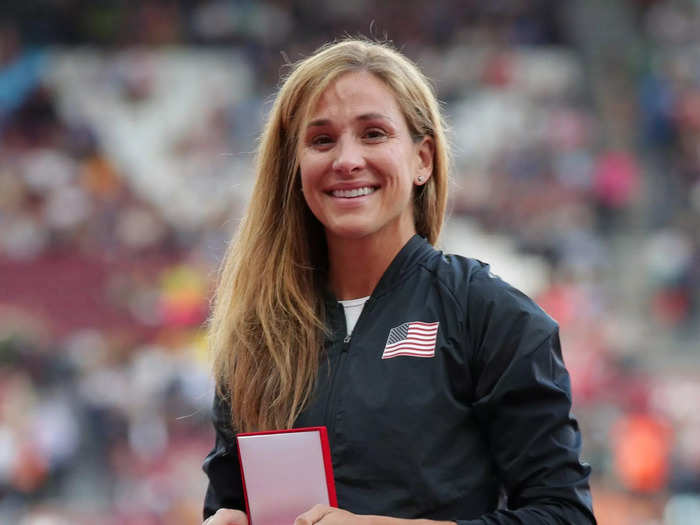
Goucher told The New York Times that Nike stopped paying her while she was pregnant and wouldn't pay her until she started racing again. When her son became ill, she was forced to choose between spending time with him in the hospital or racing in order to bring home a paycheck.
"It took such a toll on me mentally and physically, for myself and for my child," Goucher told the Times. "Returning to competition so quickly was a bad choice for me. And looking back and knowing that I wasn't the kind of mother that I want to be — it's gut wrenching."
WNBA Players Association president and Los Angeles Sparks superstar Nneka Ogwumike is helping WNBA players connect with corporate sponsors to close the gender pay gap.
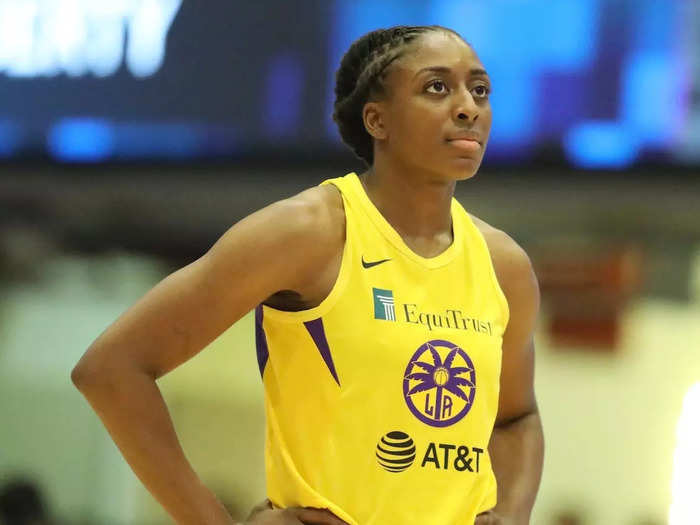
Only 0.4% of total sports sponsorship is devoted to women's sports and athletes, Insider's Meredith Cash reported. That means for every dollar a company invests in endorsement deals for men's sports, less than half a penny goes to the women's game.
Ogwumike helped the players' union establish a multi-year partnership with Parity, an emerging online platform that works to connect women's athletes with corporate sponsors.
"Pay equity has always been a point of emphasis for us when we're advocating, not just for ourselves, but for women in the workplace," WNBA Players Association President and Los Angeles Sparks superstar Nneka Ogwumike told Cash. "... Talking about supporting women is easy, but doing it takes another level of perspective and awareness to really step into that."
Paralympian Tatyana McFadden helped ensure that US Paralympians win the same amount of prize money as Olympians at the Tokyo Games.
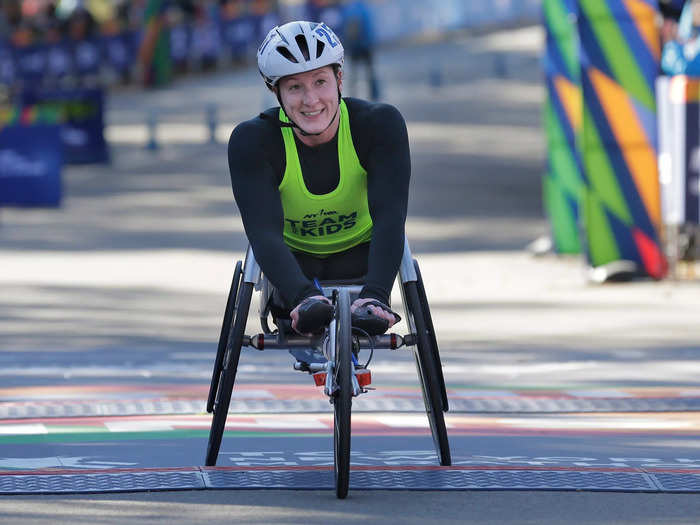
McFadden began her advocacy in high school when she became the namesake of "Tatyana's Law" in 2013 — it required schools to allow students with disabilities to compete in interscholastic athletics. She continued the fight for equality in the Paralympics, advocating for equal pay.
Previously, US Paralympic athletes won $7,500 for every gold medal, $5,250 for silver, and $3,750 for bronze, The New York Times reported. Meanwhile, Olympians won $37,500 for gold medals, $22,500 for silver, and $15,000 for bronze.
The United States Olympic Committee (USOC) adjusted the prize money for Paralympic athletes to equal that of Olympians — as much as a 400% increase — shortly after the 2018 Winter Olympics. The committee retroactively paid 2018 Paralympians the new higher amounts, but the 2021 Olympics and Paralympics in Tokyo mark the first time they were paid equally from the start.
"I've been competing at the Paralympics for 15-16 years, and this is the first time that I'm going to get equal pay," McFadden told CBS8. "I mean, this is my job, right? This is what I do. I'm a professional athlete, and I think it's such a turning point because I actually feel valued."
In March, Oregon Ducks player Sedona Prince showed the disparity between the men's and women's weight rooms in a viral TikTok video.
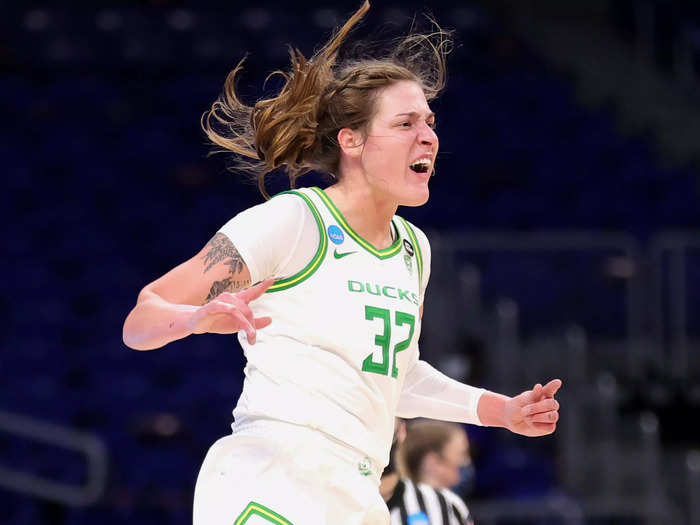
In her video, which garnered over 12 million views, Prince showed how the men's NCAA teams had access to a spacious room full of equipment, while the women's teams were given a single set of weights.
The NCAA subsequently apologized.
"I apologize to the women's student-athletes, coaches and committee for dropping the ball on the weight room issue in San Antonio, we'll get it fixed as soon as possible," NCAA Senior Vice President of Basketball Dan Gavitt said on a Zoom call addressing the discrepancies.
According to a press release, Prince said, "With the changes in the NIL space, there is no shortage of new opportunities for athletes. I am committed to working with companies who share my values and my passion for equality and am excited to work with Parity during one of the most pivotal times in college sports history. I feel like we can make a truly positive impact."
Kyrie Irving of the Brooklyn Nets called the disparity between men's and women's teams in the NCAA "unacceptable."
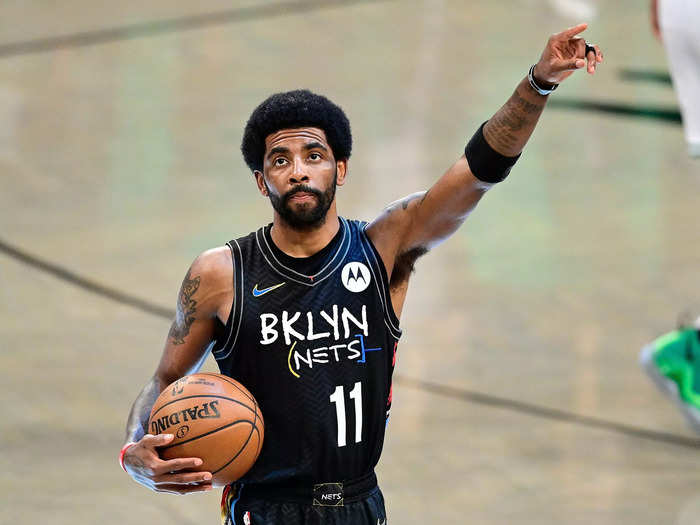
After Prince's video went viral, Irving said at a press conference in March that he wants to see more action than words from the NCAA, the New York Daily News reported.
"It is kind of eye-opening every single day to realize we live in a society where we kind of expect so much from men, our kings, and we go out and show an effort like that in terms of how we show our respect for our queens, going to play on a high level as well," he said.
He continued: "Everyone talks a good game about how they want to change things in this world and society, and they had a chance. The NCAA failed ... But that is a conversation we need to have as professionals, kind of away from these platforms in order to see the real change but, it is good to see that we've galvanized around what needs to be done the right way in terms of handling our queens and I felt like I needed to step in and say something, so. It is as clear as day what is going on. We need to make a change there."
READ MORE ARTICLES ON
Popular Right Now
Popular Keywords
Advertisement